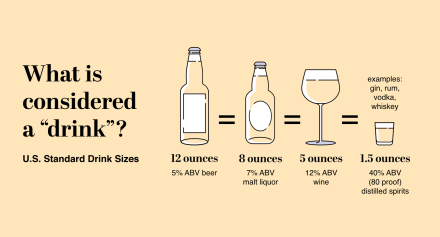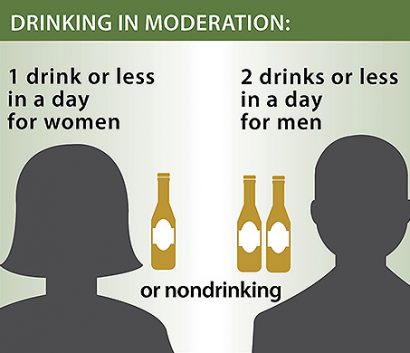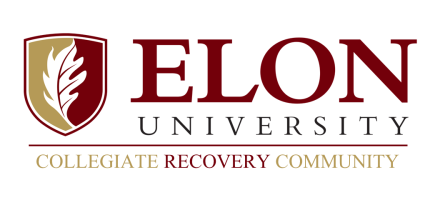Campus Recreation and Wellness provides information, tips, and resources regarding alcohol use and reducing alcohol-related risks during the holidays
During the holidays, there is an increase in alcohol consumption. Researchers found that about 29% of Americans stated that they would be drinking more during the holidays. The increase in consumption can be due to the sociable nature of holidays, such as celebrations and gatherings.
For these reasons, Campus Recreation and Wellness at Elon is offering strategies and resources to help promote safer alcohol consumption during the holiday season.
“During the holiday season, typically Thanksgiving through New Year’s, this is the time of year when drinking tends to increase. Alcohol is deeply interwoven in our society. Holiday celebrations most often include alcohol,” said Callie Kelly, assistant director for student wellness.
Additionally, the holiday season can increase depression, stress and anxiety related to family conflict, financial strain, loneliness, or grief. These factors combined can lead to unhealthy coping behaviors and overconsumption of alcohol.
“For some, the holidays are not always happy moments or times. This time of the year can be triggering and precipitate increased alcohol misuse,” Kelly said.
The Centers for Disease and Control and Prevention classify excessive alcohol use as binge drinking, heavy drinking, and any drinking by pregnant women or people younger than age 21. Excessive alcohol use is associated with more than 140,000 deaths in the U.S. annually.
Excessive alcohol use and alcohol misuse can also have short-term health risks and long-term health effects. Short-term health risks include injuries (such as traffic accidents, falls, drowning and burns), alcohol poisoning, violence (such as homicide, suicide and sexual assault), miscarriage and birth defects. Long-term health effects due to excessive alcohol use and alcohol misuse include heart and liver disease, weakened immune system, dementia, mental health disorder and AUD (alcohol use disorder).
As many will be invited to multiple gatherings between now and New Year’s, here are a few suggestions for practicing safer alcohol consumption to navigate the holiday season.
Strategies for Safer Drinking
Tip 1: Have a Plan
Think ahead about the events you plan to attend and strategize. Decide if you will drink and know your limit. If attending back-to-back celebrations, especially on the same day, commit yourself to some “alcohol-free” social events. Be mindful of your overall alcohol consumption during the holidays.
Tip 2: Keep Your Stomach Full
If you’re planning to drink, be sure that you eat a full meal beforehand. This will help slow the absorption of alcohol.
Tip 3: Keep Track of Your Drinks
 To avoid overindulging, set a drink limit for yourself and stick with it. Remember that one standard drink is defined as:
To avoid overindulging, set a drink limit for yourself and stick with it. Remember that one standard drink is defined as:
- 12 ounces of beer at 5% alcohol
- 5 ounces of wine at 12% alcohol
- 1.5 ounces of distilled spirits at 40% alcohol
Additionally, although party punches may taste delicious, you may not know how much alcohol is included. Instead, enjoy a glass of wine and try spacing your drinks to one an hour.
Tip 4: Stay Well-Hydrated
Drinking plenty of water before, during, and after consuming alcohol can help prevent and/or reduce hangovers. Consider alternating your drinks with water and other non-alcoholic beverages.
Recommended Guidelines
 The 2020-25 Dietary Guidelines for Americans recommend that adults of legal drinking age drink in moderation by limiting alcohol intake to two drinks or less in a day for males and one drink or less in a day for females.
The 2020-25 Dietary Guidelines for Americans recommend that adults of legal drinking age drink in moderation by limiting alcohol intake to two drinks or less in a day for males and one drink or less in a day for females.
In the United States, a “standard drink” (also known as an alcoholic drink- equivalent) is any beverage containing 0.6 fluid ounces or 14 grams of pure alcohol.
It is also recommended to avoid alcohol if one is:
- Taking medications that interact with alcohol
- Managing a medical condition that can be made worse by alcohol
- Under the age of 21
- Recovering from alcohol use disorder (AUD) or unable to control one’s drinking amount
- Pregnant or might be pregnant
Recovery Support and Resources
Elon has a continuum of educational programs and resources that address substance use prevention, harm reduction, and recovery support for individual students and student groups.
”If and when a student faces decisions about substance use, we want them to be informed. Programs and events raise campus awareness and empower students to examine their own substance use behaviors,” Kelly said.
 Phoenix Free is a student-led organization that supports students in recovery or that may be interested in recovery. John Shinn, a collegiate recovery specialist, encourages students to lean on their support network and surround themselves with people that embrace recovery.
Phoenix Free is a student-led organization that supports students in recovery or that may be interested in recovery. John Shinn, a collegiate recovery specialist, encourages students to lean on their support network and surround themselves with people that embrace recovery.
“The winter break can be especially difficult for students in early recovery,” Shinn said.
Phoenix Free is a grant-funded program and affirms a student’s decision to engage in a fun, substance-free college experience. The program is coordinated by Campus Recreation and Wellness professional staff.
If anyone is interested or wants more information, contact the program via email at phoenixfree@elon.edu.
Other available campus programs and resources for students include:
- Alcohol and Substance-free Housing for Elon Students (ASHES) Learning and Learning Community
- Brief Alcohol Screening and Intervention for College Students (BASICS)
- Mental Health Screening Tool (Offered through by Elon Counseling Services)
- TimelyCare
The university also has programs and resources regarding substance use prevention for faculty and staff, including Elon Work-Life resources, such as MYgroup, which provides assessment and counseling services through the Employee Assistance Program (EAP).
The National Institution on Alcohol Abuse and Alcoholism and the CDC also provide resources through campaigns and tools, including “Rethinking Drinking–Alcohol and Your Health,” “Drink Less. Be Your Best,” and a brief alcohol screening tool.



